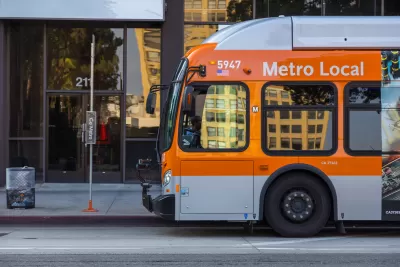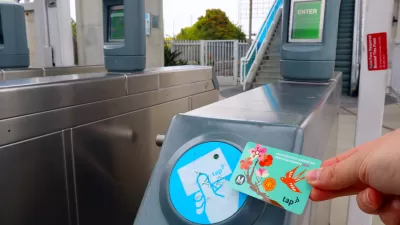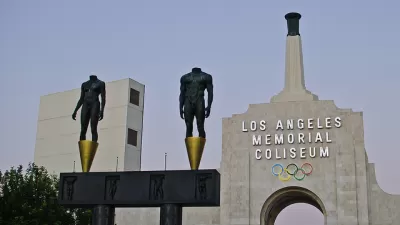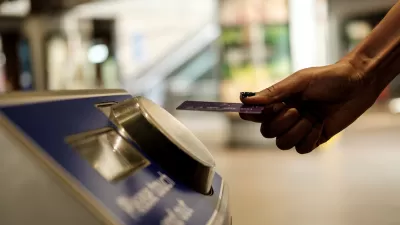Transit fares will be capped at $5 per day for all riders who pay with TAP cards, whether or not they have weekly or monthly passes.

The Los Angeles County Metropolitan Transportation Authority (Metro) is joining other transit agencies that are capping daily fares for pay-as-you-go riders, writes Jared Brey in Governing.
“On July 1, Los Angeles Metro will introduce a new fare policy whereby riders who pay for each ride as they go will pay no more per week than riders who buy an unlimited weekly pass.” This means Metro riders will pay no more than $5 per day or $18 per week.
As Brey explains, “The new policy is designed to address an inequity that persists in many transit agencies, where regular riders who can least afford the upfront cost of weekly or monthly passes end up paying more to ride the subway or bus.”
Over two dozen agencies around the country have implemented fare capping programs since 2017, when Portland became the first U.S. city to adopt one. Unlike programs such as New York City’s, “The weekly counter begins whenever a rider makes their first swipe and runs for seven days, rather than starting over on Monday. That’s part of the agency’s attempts to make a smooth transition to TAP cards for riders who currently pay cash.”
Other changes to Metro’s fare policies include the end of half-price discounts on daily, weekly, and monthly passes and a new flat 75 cent rate for seniors, riders with disabilities, and students.
FULL STORY: L.A. Metro Joins Push for More Equitable Transit Fares

Planetizen Federal Action Tracker
A weekly monitor of how Trump’s orders and actions are impacting planners and planning in America.

Restaurant Patios Were a Pandemic Win — Why Were They so Hard to Keep?
Social distancing requirements and changes in travel patterns prompted cities to pilot new uses for street and sidewalk space. Then it got complicated.

Map: Where Senate Republicans Want to Sell Your Public Lands
For public land advocates, the Senate Republicans’ proposal to sell millions of acres of public land in the West is “the biggest fight of their careers.”

Maui's Vacation Rental Debate Turns Ugly
Verbal attacks, misinformation campaigns and fistfights plague a high-stakes debate to convert thousands of vacation rentals into long-term housing.

San Francisco Suspends Traffic Calming Amidst Record Deaths
Citing “a challenging fiscal landscape,” the city will cease the program on the heels of 42 traffic deaths, including 24 pedestrians.

California Homeless Arrests, Citations Spike After Ruling
An investigation reveals that anti-homeless actions increased up to 500% after Grants Pass v. Johnson — even in cities claiming no policy change.
Urban Design for Planners 1: Software Tools
This six-course series explores essential urban design concepts using open source software and equips planners with the tools they need to participate fully in the urban design process.
Planning for Universal Design
Learn the tools for implementing Universal Design in planning regulations.
Heyer Gruel & Associates PA
JM Goldson LLC
Custer County Colorado
City of Camden Redevelopment Agency
City of Astoria
Transportation Research & Education Center (TREC) at Portland State University
Camden Redevelopment Agency
City of Claremont
Municipality of Princeton (NJ)





























